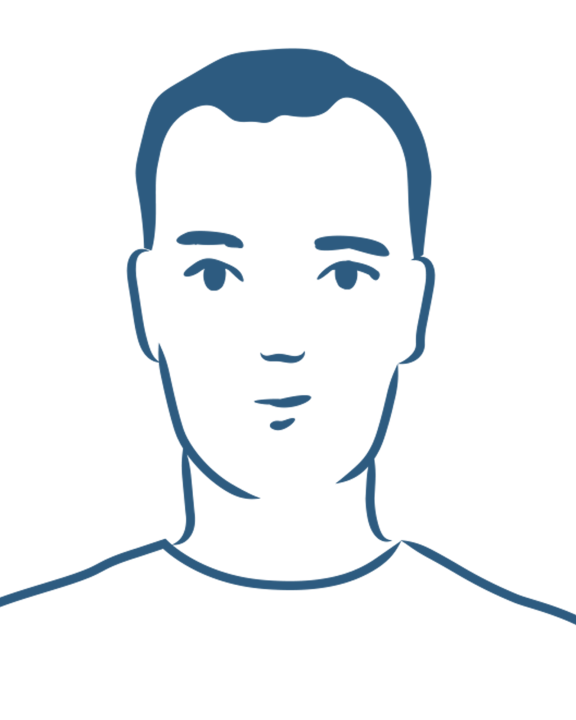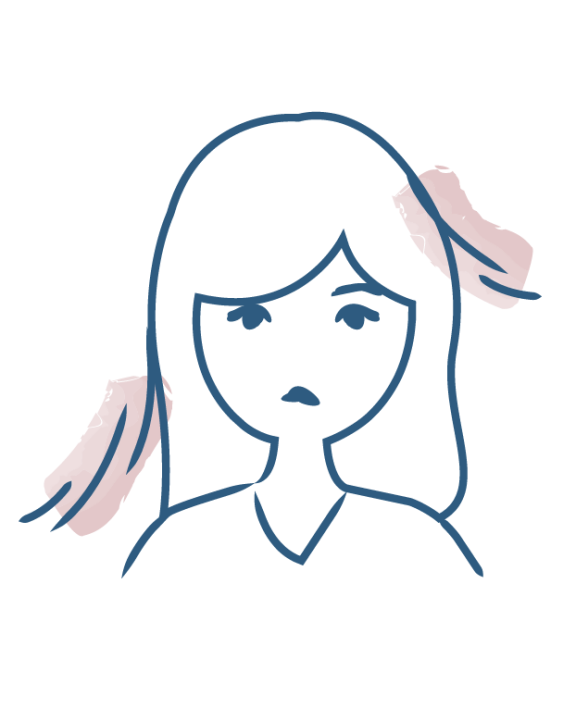The causes of hair loss
Hair loss: the impact of iron, zinc, vitamin D, C and B12 deficiencies
- The causes of hair loss
- Hair loss and genetics
- What is traction alopecia?
- Drug-induced hair loss
- Hair loss and hormones
- Spot baldness and hair loss
- Hair loss due to ringworm of the scalp
- Scarring alopecia
- Androgenetic alopecia in women and men
- Hair loss and fatigue
- Hair loss and the pill
- Secondary syphilis and hair loss
- Hair loss and menopause
- Pregnancy and hair loss: everything you need to know
- Hair loss and Covid
- Everything you need to know about seasonal hair loss
- Hair loss: the impact of iron, zinc, vitamin D, C and B12 deficiencies
- Hair loss due to stress: reactional hair loss

Hair loss: the impact of iron, zinc, vitamin D, C and B12 deficiencies
To grow properly, hair needs a sufficient amount of vitamins and nutrients. Certain nutritional deficiencies can have a direct impact on hair loss.
Hair loss and deficiency: the vicious cycle
Vitamins and minerals play a fundamental role in the normal life cycle of hair, particularly in the renewal and multiplication of the cells that form the hair at the root. Insufficient intake, especially in the case of dietary imbalance, can be one of the causes of hair loss. Deficiencies of certain vitamins and minerals disrupt hair growth, cause hair fragility and lead to hair loss.
Sulfur amino acids, such as methionine and cysteine, also play a major role in hair health. These small molecules found in food are used by the body to form a protein called keratin. It is the main component of the hair fiber, and gives it its properties of resistance and elasticity. If they are not provided in sufficient quantities by food or if they are more difficult to absorb by the intestines, as observed with age, they can no longer play their beneficial role in the growth of strong and resistant hair.
This is one of the reasons why dermatologists recommend the use of dietary supplements with sulfur-containing amino acids as a 3-month treatment. They are a valuable aid in stimulating healthy hair growth and promoting regrowth in cases of alopecia. They are particularly recommended to compensate for hair loss after pregnancy
The different nutritional deficiencies that accentuate hair loss
Iron deficiency and hair loss
Iron is a mineral that is part of the composition of hemoglobin. Hemoglobin is a protein found in red blood cells and is responsible for transporting oxygen in the body. The supply of oxygen to the hair follicles through the small blood vessels of the scalp is absolutely necessary for healthy hair growth. Numerous studies suggest a link between iron deficiency (i.e., a lack of iron in the blood) and hair loss, particularly in telogen effluvium (acute or chronic) and androgenetic alopecia*.
Zinc deficiency and hair loss
Zinc is a mineral that is involved in many of the reactions and activations necessary for the synthesis of the proteins that make up hair, particularly keratin. Keratin plays an essential role in the structure of the hair and its resistance. Correcting a zinc deficiency therefore promotes healthy hair growth.
Vitamin B12 deficiency and hair loss
There are 8 group B vitamins: B1, B2, B3, B5, B6, B8, B9 and B12. Vitamin B12 is not synthesized by the body, so it is only provided by food. However, it plays an essential role in the normal functioning of all the cells in the body, particularly those of the hair follicle. Vitamin B12 deficiencies can therefore be a cause of hair loss and must be compensated for.
Vitamin D deficiency and hair loss
Exposure to the sun helps the body synthesize vitamin D. Lack of vitamin D can be an aggravating factor in reactional hair loss (acute telogen effluvium), especially in the autumn.
Vitamin C deficiency and hair loss
Vitamin C plays two important roles in the normal life of hair:
- It is an excellent antioxidant. It protects the hair against the devastating effects of free radicals, which can attack and alter the structure of the hair by causing oxidation.
- It promotes the absorption of iron from food. Iron is essential for the sufficient supply of oxygen to the hair follicle and the growth of healthy hair.
A vitamin C deficiency can therefore make hair brittle and dull and promote hair loss.
* Source: Kantor 2003, Rushton 2002, Guo and Katta 2017
Our targeted solutions for occasional hair loss
Discover our complete range
- Anti-hair loss complement shampoo
ANAPHASE
Anti-hair loss complement shampooRevitalizes - Helps to strengthen - Prevents hair loss
More information
- Discover Hair loss: the impact of iron, zinc, vitamin D, C and B12 deficiencies
The causes of hair loss
Hair loss: the impact of iron, zinc, vitamin D, C and B12 deficiencies
- Discover Everything you need to know about seasonal hair loss
What is hair loss?
Everything you need to know about seasonal hair loss
- Discover Hair loss and Covid
The causes of hair loss
Hair loss and Covid
- Discover Secondary syphilis and hair loss
The causes of hair loss
Secondary syphilis and hair loss
- Discover Hair loss and menopause
The causes of hair loss
Hair loss and menopause
- Discover Androgenetic alopecia in women and men
What is hair loss?
Androgenetic alopecia in women and men
- Discover Hair loss due to ringworm of the scalp
The causes of hair loss
Hair loss due to ringworm of the scalp
- Discover Scarring alopecia
The causes of hair loss
Scarring alopecia
- Discover Pregnancy and hair loss: everything you need to know
The causes of hair loss
Pregnancy and hair loss: everything you need to know
- Discover Spot baldness and hair loss
The causes of hair loss
Spot baldness and hair loss
- Discover Hair loss and hormones
The causes of hair loss
Hair loss and hormones
- Discover Hair loss and the pill
The causes of hair loss
Hair loss and the pill
- Discover Hair loss and fatigue
The causes of hair loss
Hair loss and fatigue
- Discover Hair loss and genetics
The causes of hair loss
Hair loss and genetics
Our care routines
Hair loss
- Discover ANTI-OCCASIONAL HAIR LOSS ROUTINE FOR MEN LESS THAN 6 MONTHS
ANTI-OCCASIONAL HAIR LOSS ROUTINE FOR MEN LESS THAN 6 MONTHS
Are you experiencing hair loss?
- Discover My Anti-hair loss for women post-pregnancy and breastfeeding women
My Anti-hair loss for women post-pregnancy and breastfeeding women
Are you experiencing hair loss?
- Discover Anti-occasional Hair loss routine for women less than 6 months
Anti-occasional Hair loss routine for women less than 6 months
Are you experiencing hair loss?




